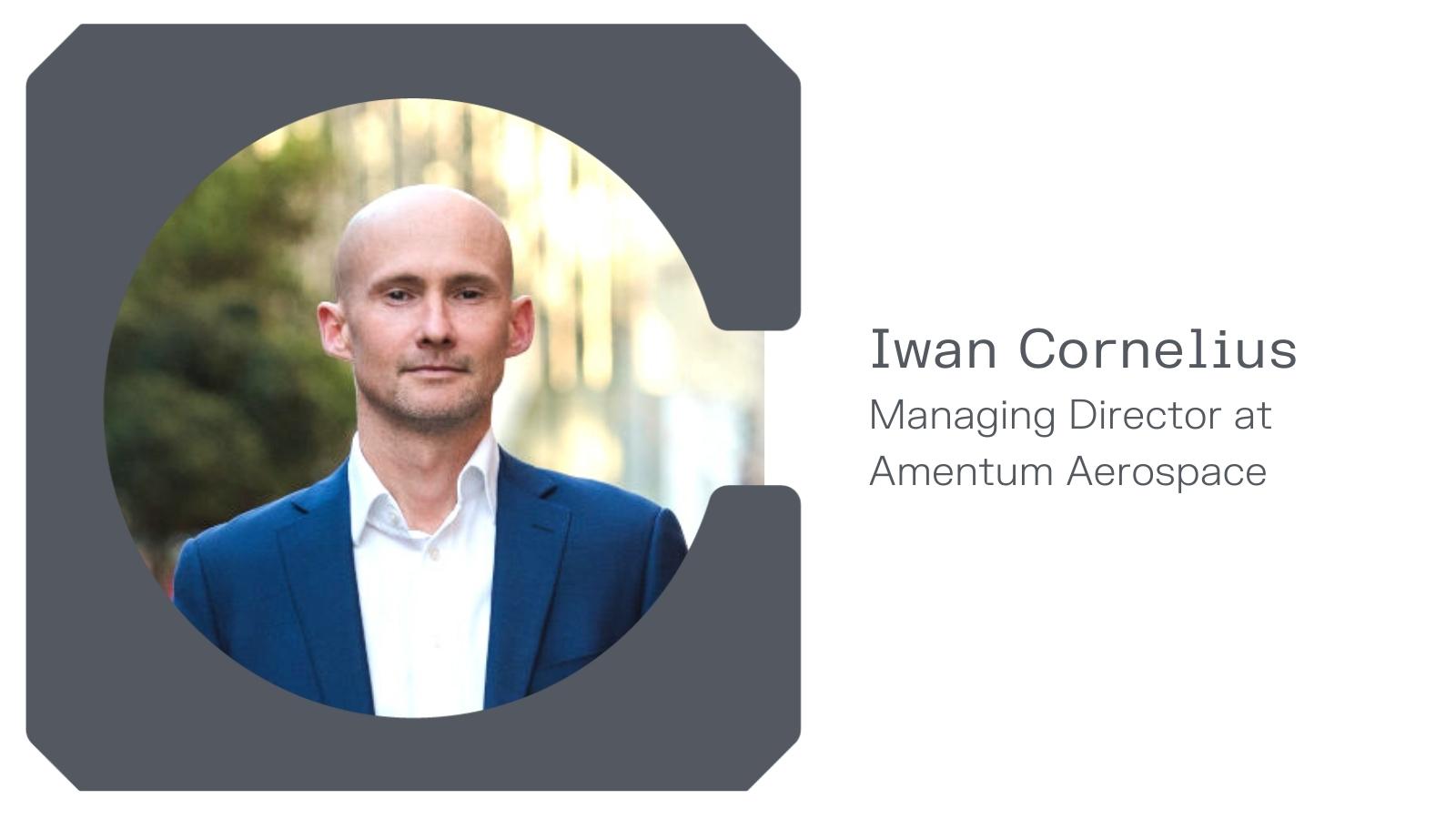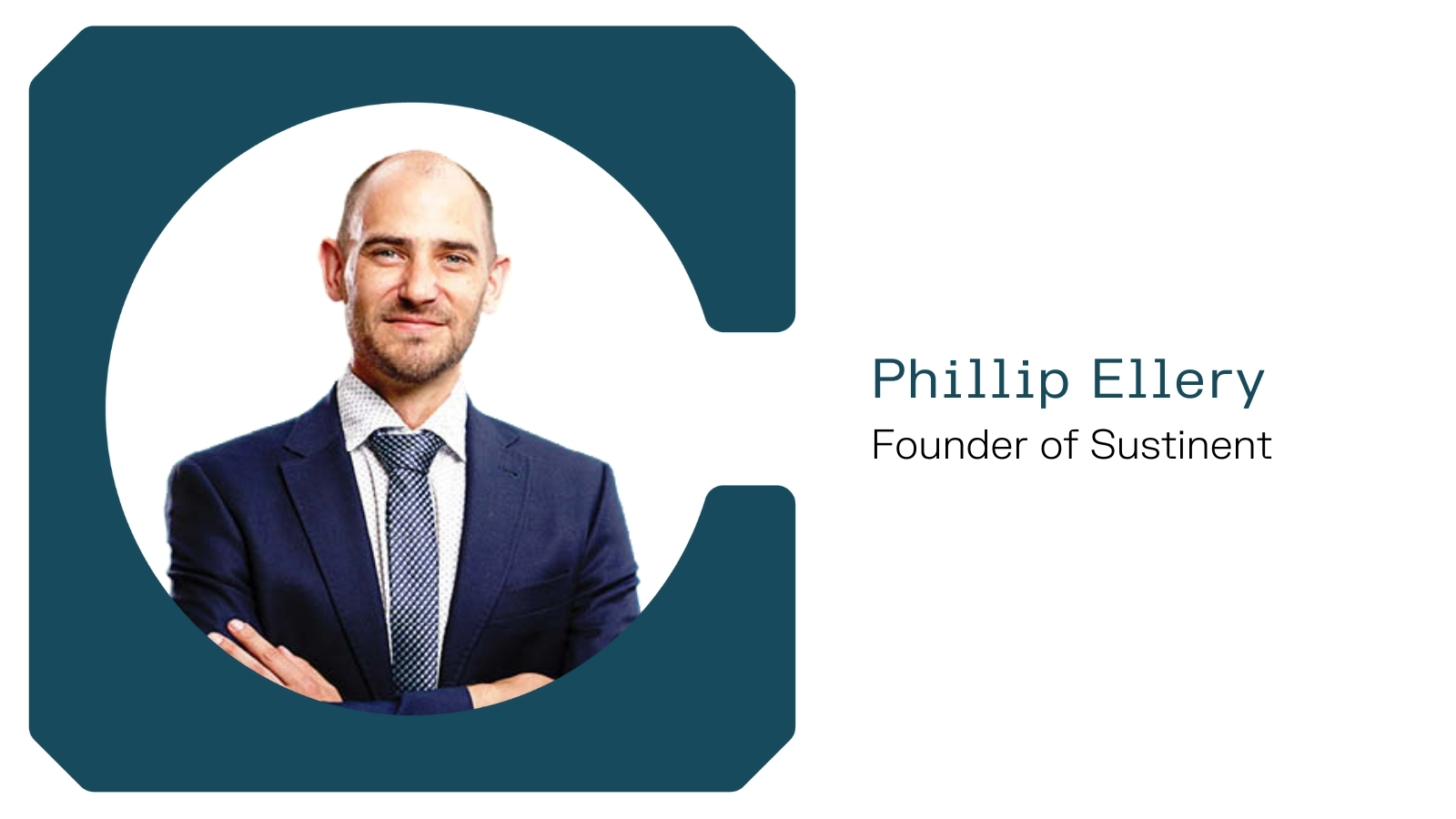Cicada Spotlight: Iwan Cornelius

Despite Australian industries being relatively siloed, there is real value in taking knowledge and technology from one industry and applying it to another. Iwan Cornelius, managing director of Amentum Aerospace and one of our Space Fast Start participants is one of those bold few who has navigated from healthcare to space entrepreneurship. Amentum Aerospace helps space industries mitigate harmful radiation effects on people and assets in space. We sat down with Iwan to understand more about his journey, his mission, and his advice for academics who are transitioning to entrepreneurship.
"Make sure you’re passionate about the business because deep tech is a long haul that is challenging (and rewarding). Buckle up! "
What pressing problem is Amentum Aerospace trying to solve?
We’re on a mission to transform industries through predictive scientific modelling, helping them to be safer, innovate faster, and to be more sustainable. We're starting by helping the space and aviation industries to mitigate the harmful effects of space radiation on assets and personnel.
You’ve had many years of experience as a medical physics academic. How did you transition from healthcare to the space tech industry?
It took a few attempts! My academic career focused on developing sensors to monitor radiation effects on humans, and software to model the same, mostly for quality assurance of preclinical and clinical cancer treatments. Having said that, one of my first research jobs involved testing a radiation sensor payload for the MidSTAR-1 mission of the US Naval Academy (side note: the mission did encounter space radiation effects).
Although I absolutely loved working in international, multidisciplinary and diverse teams on cutting edge science & technology, I would periodically become disillusioned by the endless grant writing, the “publish or perish” pressures, and limited leadership opportunities of academia. So, I explored other careers such as software development, defence, and film & television, but eventually found my way back to research.
I ultimately leapt from academia in 2014 along with colleague and friend Dr Christopher Poole† to start a consulting business, and Amentum Aerospace was effectively spun out of that. Since 2016, Amentum has helped the Department of Defence to explore new technology concepts through modelling and simulation. We have bootstrapped the business, the team is growing steadily, and we are now commercialising technology to mitigate the risk of space radiation effects on satellites, aircrew, astronauts, and space tourists.
† Chris joined Amentum Aerospace as Technology Director in 2021, getting the band back together.
What is your advice for aspiring innovators that are navigating the transition into founding a startup?
- Look after yourself by de-risking the transition as much as possible. Consider working on the startup part-time while you have another job, start saving to give yourself a personal runway,
- Talk to people who’ve done it before, listen to podcasts, research the industry, make sure you’ve got a support network including family and friends and mentors, and make sure you’re passionate about the business because deep tech is a long haul that is challenging (and rewarding). Buckle up!
Amentum Aerospace has recently been nominated for the Australian Space awards. What else would you like to achieve this year?
It seems we are the Leonardo DiCaprio of the Australian Space Oscars (next year is our year!), although being nominated itself helps to lift the company profile and gives the team much deserved recognition for their stellar work.
This year’s business goals: continue to add value to existing customers, do the same for new customers, double our headcount, double our revenue, and partner with the Australian space industry to release a sovereign and fit-for-purpose space radiation effects modelling capability.
How is the Space Fast Start program helping you achieve your goals?
We started a few weeks ago and Fast Start has already helped on multiple levels, including:
- Warm introductions to potential development partners, customers, and investors, tapping into the extensive aerospace networks of our coaches Tim Parsons and Julie Autuly.
- We are a team of scientists and software developers and find it easy to get absorbed in the technology. The coaching sessions with Tim help us to be mindful of all aspects of the business, test different commercialisation and go-to-market strategies, and to have that accountability of doing our home-work each week.
- Monthly sessions with our ideal mentors - a senior executive/angel investor and a seasoned space industry operator - provide invaluable insights that will help us to scale the business in both Defence and civil space sectors.
- On top of all that, there is access to the collective wisdom of the Cicada team, and opportunities for serendipitous conversations with other residents and visitors.
All in all, Fast Start is a compelling value proposition for any space startup. Five stars, highly recommended!
What are you currently reading, watching, or listening to that you would recommend to the community?
Current reading: “The New Strategic Selling” (following advice offered at a Cicada Innovations “C-Suite” lunch). My scientific training did not prepare me for the complexities of enterprise sales, and I’m on a steep learning curve!
Current listening: Firstly, Hiroshi Yoshimura - a pioneer of electronic ambient music - for focus. Secondly, “How I Built This with Guy Raz” - a podcast full of inspirational stories of successful companies and the founders behind them. There is much to be learned from the experiences of those who’ve gone before us.


